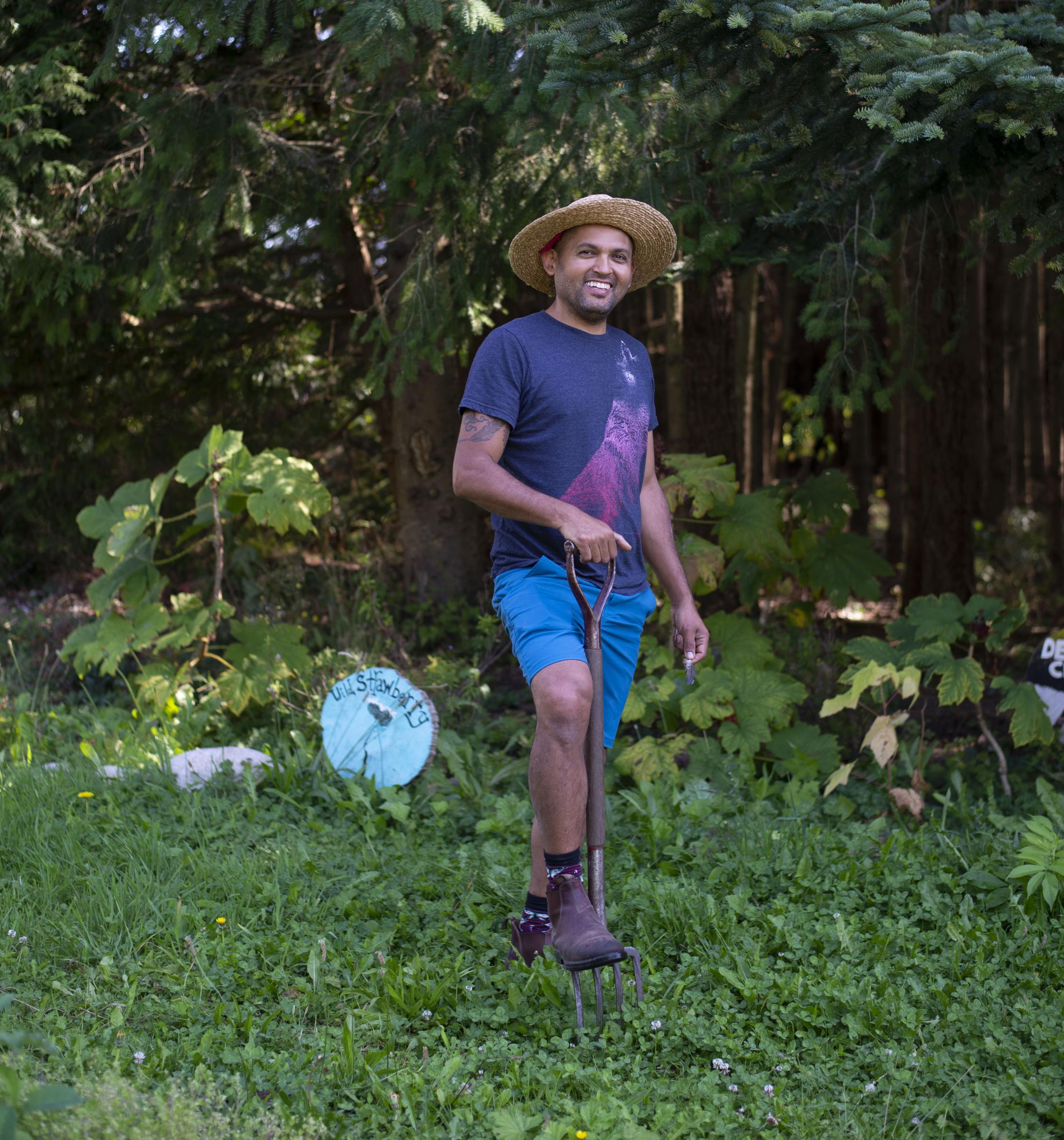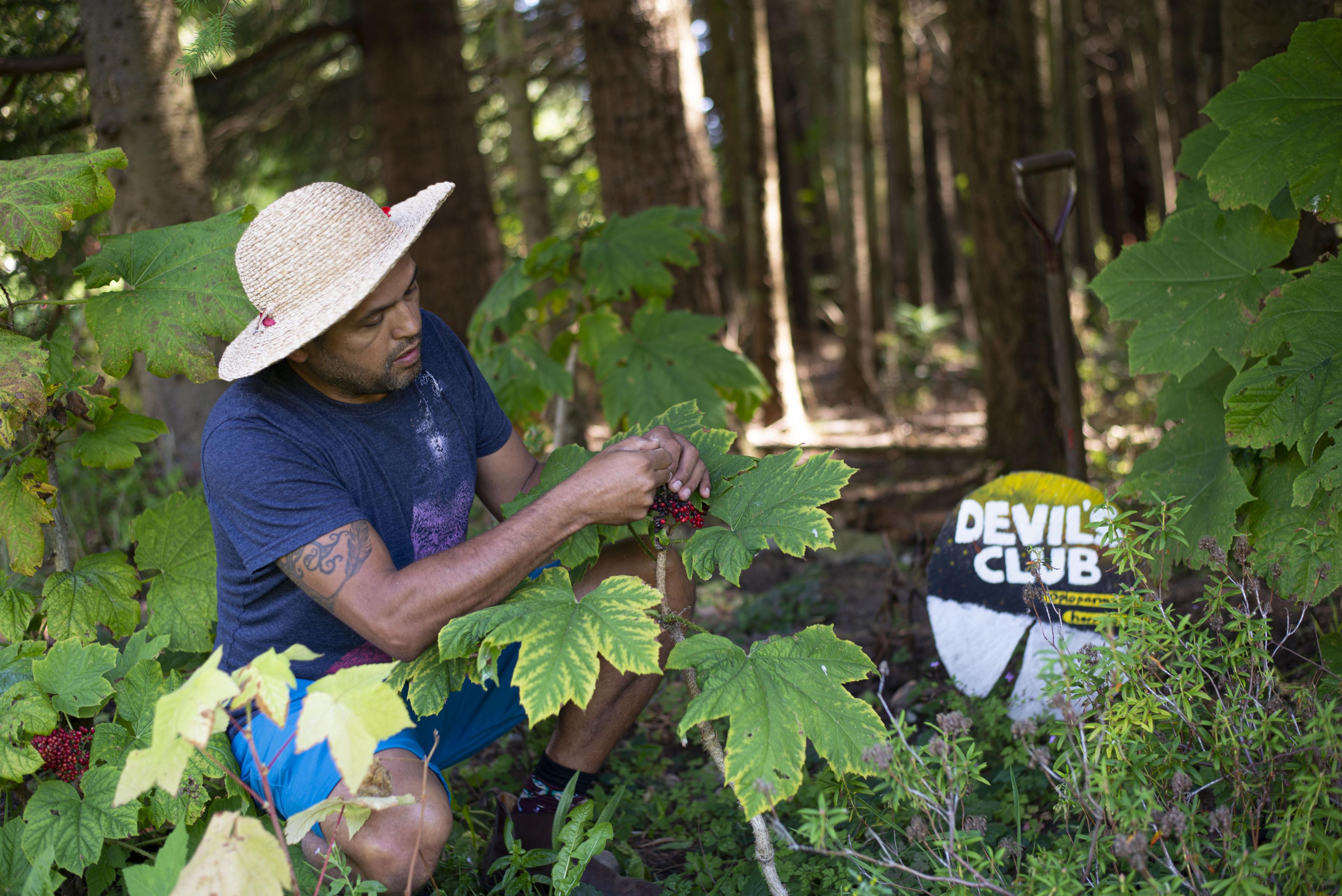Wilson Mendes
My study undertakes a critical Indigenous qualitative research to examine how Indigenous land-based pedagogies and Indigenous food sovereignty framework can support the health and wellness of urban Indigenous youth.
Research description
The PhD research is taking place on the unceded traditional and ancestral territories of the xʷməθkʷəy̓əm (Musqueam) People at the UBC Farm. My doctoral research is an interdisciplinary study linking Indigenous Education with Land and Food Systems. Grounded in critical Indigenous research, my study examines the degree in which Indigenous Land-Based Pedagogies (ILBP) and Indigenous Food Sovereignty (IFS) can support Indigenous youth’s health and wellness. The theoretical framework of my research is rooted in Indigenous epistemologies and critical methodologies in the context of ILBP and IFS scholarship. While ILBP facilitates the development of Indigenous health and wellbeing through reciprocal land-based practices, IFS approaches offer a self-determination agenda toward reconnecting urban Indigenous people with land, food, culture, and community. Within this context, my study explores the role(s) ILBP can play in supporting holistic healing and wellbeing of urban Indigenous youth through sustainable land-based practices directed towards resurgence of IFS.
What does being a Public Scholar mean?
Being a public scholar means that I have a sacred responsibility to stand up for the people and communities I work with and for. The strength of my academic and professional development emerge from an ongoing web of relationships within the food systems network in the Pacific Northwest. In this rapidly expanding collaborative work, I have helped organized many strategic meetings, conferences and dialogues relevant to Indigenous food sovereignty and sustainable food system sustainability. In my current role as a multimedia director of the Working Group on Indigenous Food Sovereignty (WGIFS) I have become more aware of my ability to hold space for cross-cultural learning tensions and deep critical consciousness. As an Indigenous scholar, my academic and professional development is motivated by providing safe and sacred spaces to support the voices and visions of Indigenous peoples who are mobilizing and migrating around the world in response to coloniality, climate change, and capitalism.
In what ways do you think the PhD experience can be re-imagined with this Initiative?
Re-imagining a PhD experience within the PSI context is to embrace an ethical, critical, and respectful research practice towards the people and communities we work with, and the planet we live on. It is also about embracing a scholarship that focuses on honoring the people and communities we work with by encouraging their self-determination and empowerment. For these social justice actions to happen, we must avoid replicating the racial injustices and environmental degradation imposed upon Indigenous people, communities of colour, and the environment. For me, my PhD experience as a ‘public scholar’ is also about using my academic privileges to support emancipatory community-led research processes that advance the project of decolonization.
How do you envision connecting your PhD work with broader career possibilities?
As an Indigenist scholar committed to social justice issues that are connected to Indigenous health, food systems, and education, I will continue supporting Indigenous communities and organizations with their efforts towards self-determination. My PhD work on Indigenous land-based education and Indigenous food sovereignty aims to contribute to Indigenous knowledge translation and dissemination towards Indigenous health and community development in urban spaces. These complex systems of Indigenous knowledge(s) are in constant flux with the living planet as they provide the best solutions for holistic Indigenous health strategies, food system sustainability, and climate change mitigation. It is within this ecological and social justice framework that I envision my scholarship to flourish.
How does your research engage with the larger community and social partners?
As an emerging Indigenist community-engaged scholar, my academic research and community-focused work aim to support Indigenous food systems transformation by promoting holistic Indigenous health and wellness in the city. The critical pathway I am forging in academia while at the same time working with communities and organizations on Indigenous food sovereignty, education, and health have been shaped and formed by many forces. These include the critical consciousness and pedagogical approaches of many Indigenous scholars and community leaders whose lifelong academic and community-focused careers have advanced Indigenous scholarship towards self-determination.
Why did you decide to pursue a graduate degree?
Since the beginning of my academic studies, I have been interested in decolonial paradigms associated with social justice issues, specifically the ones related to Indigenous sovereignty and land and food systems. Pursuing graduate studies allowed to me engage with these systems of knowledge and gain access to Indigenous scholars who have been quintessential in supporting my academic graduate work and wellbeing.
Why did you choose to come to British Columbia and study at UBC?
I came to UBC in 2012 to pursue my MA in Indigenous Planning which was a new community planning specialization offered by the School of Community and Regional Planning (SCARP). It was refreshing to be in a school that was challenging their own Western colonial planning practices and assumptions. After finishing my studies at SCARP I was invited by Dr. Eduardo Jovel to purse my doctoral studies under his supervision with the Faculty of Land Food Systems.
Being a public scholar means that I have a sacred responsibility to stand up for the people and communities I work with and for.






